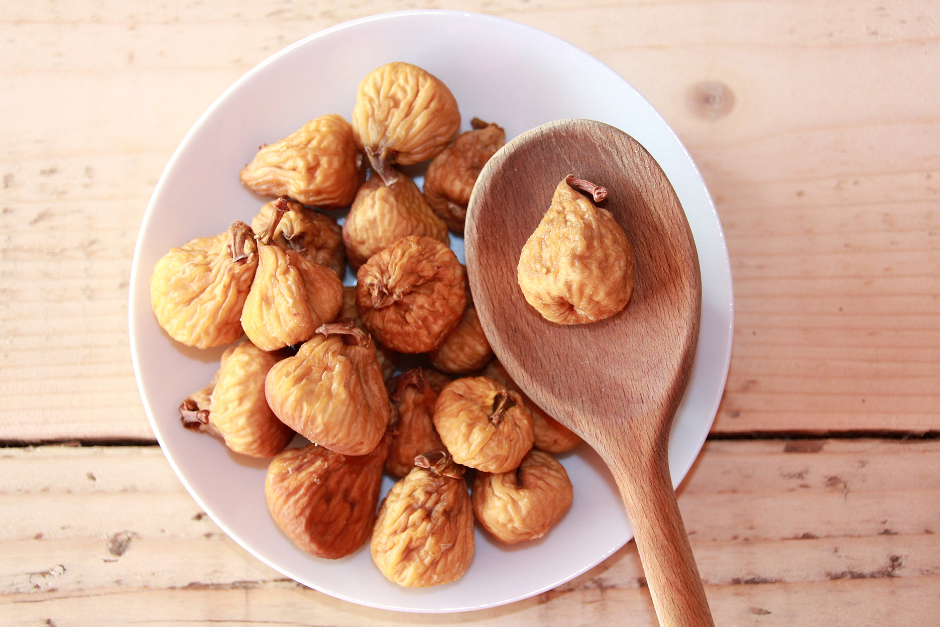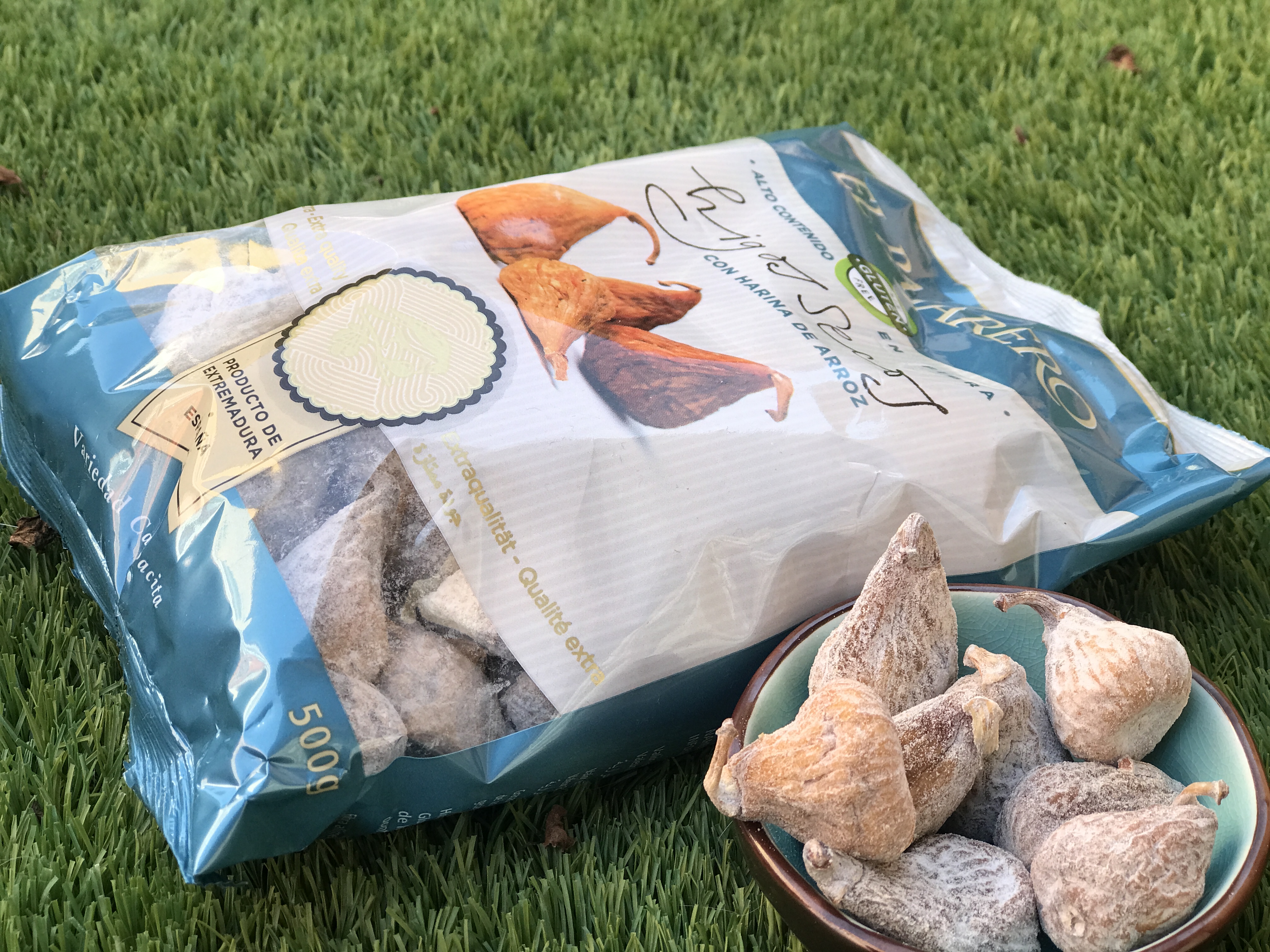
A few days ago, in the first part of this article, we told you about the importance of potassium intake for your health. Today we bring you the second and final part.
We all know that potassium is important for our health, but do we know how much we should consume every day? This time, we will focus on the recommended intake and list some of the main foods high in potassium, especially fruits :)
In many cases, most people don't think about this mineral until they are diagnosed with an electrolyte imbalance. As we told you in part one, potassium is essential for maintaining fluid balance, transmitting nerve impulses and contracting muscles. It also helps keep blood pressure under control and may reduce the risk of heart disease and stroke. As well as being found in many leafy green vegetables, potassium is present in other healthy foods such as figs, oranges, yoghurt, salmon and avocados. Below is a more detailed explanation of how much potassium we need each day and some tips for getting more potassium in our diet.
How much potassium should we consume each day?
What we eat has a direct impact on our overall health. Eating the right foods helps maintain the right level of potassium, which is essential for healthy cell function. By eating a balanced diet, we can help our bodies stay strong and prevent disease.
The amount of potassium needed depends on age and gender. According to the National Institutes of Health (NIH), part of the US Department of Health and Human Services, the average recommended daily amounts are:
- Children 1 to 3 years old: 2,000 mg.
- Children 4 to 8 years old: 2,300 mg
- Boys 9-13 years: 2,500 mg
- Girls 9-13 years: 2,300 mg
- Adolescents 14-18 years (boys): 3,000 mg
- Adolescents 14-18 years (girls): 2,300 mg
- Adults 19 years and older (men): 3,400 mg
- Adults over 19 (women): 2,600 mg
- Pregnant women: 2,900 mg
- Breast-feeding women: 2.800 mg
It is important for the general population to get their daily dose of potassium. As mentioned at the beginning, potassium is found in many foods. In addition to those mentioned in the first part of this article https, it is also found in green leafy vegetables. Dried fruits such as figs, prunes, apricots, sultanas, walnuts. Also Bananas, oranges. Meat, poultry and fish. Milk, yoghurt. Lentils, soybeans, sweet potatoes, and many others.
Is the banana the fruit that provides us with the most potassium?
For generations, in many cities around the world, the banana has been associated with the fruit that contains the most potassium. Surely if you remember your childhood, the words of your parents or grandparents will resonate when they insisted that you should eat at least one a day. In reality, there are fruits that provide even higher amounts.
Here is a list of the fruits that, according to the Spanish Nutrition Foundation (FEN), have the highest amount of potassium:
Coconut
It is the fruit richest in potassium according to the FEN (Spanish Nutrition Foundation), providing 405g in 100 grams, although it also has the highest amount of saturated fatty acids and its consumption is recommended in small portions. Another advantage of coconut is that it contains selenium and iron.
Avocado
Avocado is a very nutritious fruit that provides a lot of nutrients. A medium avocado contains 400 mg of potassium per 100 grams, which puts it in second place. It also helps us to maintain heart health and provides us with vitamin E.
Custard apple
Third place goes to a fruit that provides 382 mg of potassium and represents 13% of our recommended intake. Compared to other fruits, custard apple has a high amount of carbohydrates (20%) and is a source of vitamin C.
Banana
As you can see, it is not in the first place as it provides us with 350 mg of potassium. Bananas are rich sources of this essential nutrient. It also includes carbohydrates (20%). This fruit also provides 30% of the daily requirement of vitamin B6.
Figs
El Pajarero dried figs provide 200mg of potassium per 100 grams of fruit. In addition to calcium, iron and magnesium. It has all the essential amino acids and a large amount of fibre. It has small amounts of vitamin B6 and thiamine.
There are many fruits that also contain high doses of potassium such as grapefruit, melons, apricots, kiwis, peaches, among others.
Potassium is an important mineral that our body needs to function properly. There are many foods high in potassium that can help us achieve this goal. Next time you go shopping, be sure to include some of these potassium-rich foods on your shopping list.
By the way, what is your favourite potassium-rich food?
Ours, dried figs :)

If you ask anyone about the minerals our bodies need, they will probably mention calcium, sodium and iron. But what about potassium? This essential mineral is another must-have that our bodies need to function properly. In this blog post, we'll take a closer look at it and discover some of its benefits.
Potassium plays essential roles in the stability of the body's heart rhythm, nervous system and muscles.
The good news is that it is found in many foods we eat every day. By consuming the right amount, your body will have all the potassium it needs to stay healthy.
Main functions of potassium
Potassium plays multiple roles in the body. Without potassium, our body would not be able to function as it should.
- Helps regulate blood pressure
- Stimulates nerve impulses
- It is involved in the production of proteins
- Helps eliminate organic waste
- Helps process carbohydrates
- Has a diuretic effect
- Supports muscle function
- Helps the permeability of membranes
- Contributes to nerve transmission
- Aids in the transport of oxygen to the brain
Some of its benefits
Normal bodily functions depend on the tight regulation of potassium concentrations inside and outside cells. This has many benefits, some of them are:
- A diet rich in potassium and calcium reduces blood pressure. High blood pressure can have many detrimental effects on the heart, blood vessels and kidneys.
- It helps regulate the heartbeat. Potassium is essential for this function because it helps maintain electrical activity within cells, especially muscle cells. In fact, two-thirds of the body's total potassium supply is stored in the muscles.
- Potassium aids muscle contraction by causing muscles to contract more forcefully than they would at rest when they are ready for action - think of muscles contracting during exercise, but with much greater force than they would under normal circumstances.
- As potassium is a mineral that behaves as an electrolyte, if you play sport or are exposed to rigorous exercise, it is normal to lose fluids and electrolytes after prolonged exertion. Therefore, in addition to consuming potassium, it is essential to drink water to recover and prevent muscle cramps.
- Potassium is important for maintaining healthy bones. It aids protein synthesis and helps maintain a healthy pH balance in the body. Potassium also helps build the minerals that make up bones.
- Potassium is an essential nutrient that helps fight fatigue. Low levels of potassium can lead to a feeling of tiredness and lethargy, so it is important to make sure you get enough of this essential nutrient each day.
What foods contain the most potassium?
Some foods rich in potassium include:
- Broccoli, spinach, cabbage and other green leafy vegetables
- Dried figs, nuts and others dried fruit
- Grapes, fresh figs and blackberries
- Carrots and potatoes
- Bananas and plantains
- Whole grains
- Lentils and pulses
- Oranges and other citrus fruits
- Milk and its derivatives
- Red meat and poultry
- Fish such as salmon, cod and sardines. etc.
In the second part of this article we will tell you how much potassium you should consume per day, which are the main foods that contain the most and how much potassium they provide. In the meantime, we will tell you more on our social networks:
See you soon!





